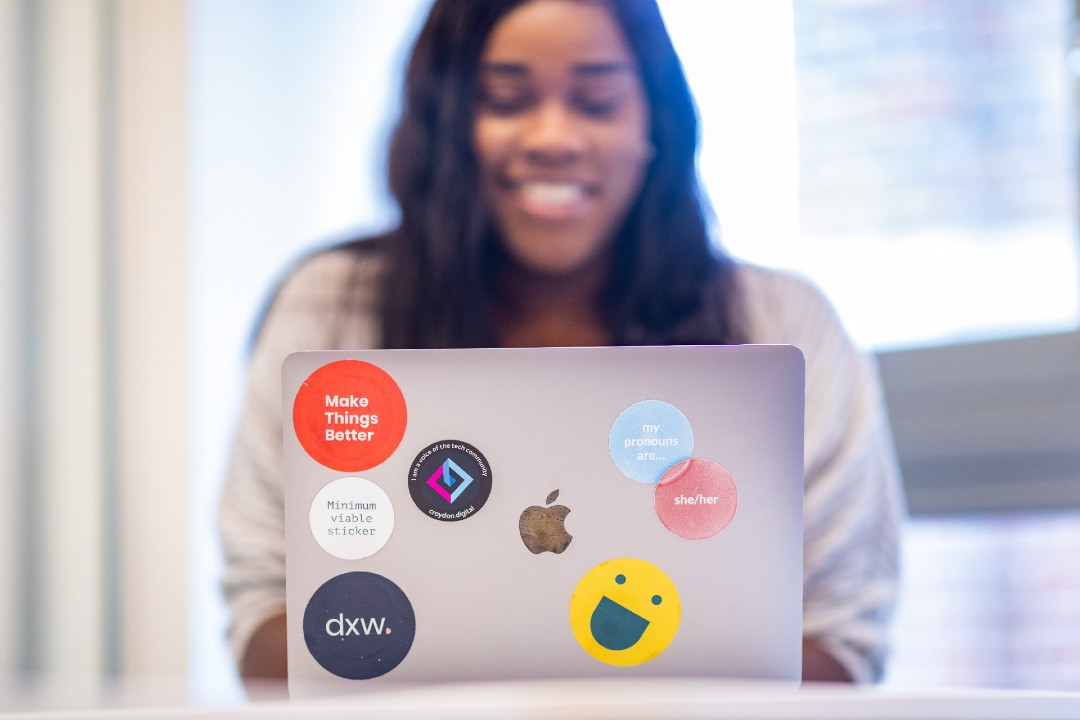Delivering public and voluntary sector projects in a remote world

We talked about the importance of iteration both in the services you’re designing and the ways you’re working
Last week, as part of the Leeds Digital Festival I chaired a panel on delivering public and voluntary sector projects in a remote world.
On the panel we had:
- Harry Trimble, Lead Service Designer at British Red Cross
- Will Callaghan, Digital Manager at Croydon Council and TechResort
- Irit Pollak, Senior Social Designer at Barnardo’s and Founder of WADUP
70 people joined the session online.
I want to thank the panelists for their thoughtful contributions, and everyone who joined and contributed to the discussion. We had some great questions and some really useful and interesting tips and insights.
In this blog post, I’ve collected together some of the discussion themes and listed the resources mentioned during the conversation.
Sharing information and reusing open source resources
There are a huge amount of resources available for the charity sector from The Catalyst. There’s also a weekly Zoom call to help charities collect and learn from each other.
We talked about reusing artifacts, principles, and good practice from others like service recipes for charities or the dxw playbook. Both of these resources are open source and welcome your contributions. The Service Manual produced by the Government Digital Service is useful for teams building products and services and has relevance outside of government too.
Doing meetings and holding workshops and retrospectives remotely
The following tools were mentioned to assist with online collaboration: Slack, MS teams, Evernote, Google Keep, Miro, HotJar. We discussed the importance of selecting what works for you, your team and/or your audience and making sure you allow for practise time as some tools can take a bit of getting used to. Try not to use too many different tools as switching between them can be difficult.
There was mention of John Waterworth’s blog post and webinar about doing user research in difficult times and Salma Patel’s write up of the session. The Government Digital Service has also been crowdsourcing tools and techniques for remote research.
For online retrospectives, our panel and audience had used Trello, TeamRetro, and Retrium successfully. We talked about the importance of allowing some individual thinking time too when running online sessions.
We talked a lot about the importance of iteration both in the services you’re designing and developing, and the ways you’re working, agreeing that smaller, more frequent changes were better than “big bang” releases or updates.
Relationships and team collaboration and communication
We discussed the importance of video calls with no agenda – just to share a hot drink together and talk about work, or not. At dxw we use the random coffee Slack extension which, if you decide to opt in, assigns you a partner for a “random coffee” each week. Even in a fairly small organisation it’s nice to talk to people outside your immediate network and not in a meeting setting. We also created a virtual kitchen which is an open video call that you can drop in and out of throughout the day for spontaneous conversations – like you would in an office kitchen. Some people will broadcast in Slack that they’re “having a tea break in 5 minutes if anyone wants to join” which is helpful too.
Buddies and paired working are an important part of collaboration, and especially important when we’re all remote. Whether this is someone who does the same job as you, for example, pair programming. It could also perhaps be someone with a different role like a service designer pairing with a front line responder to understand their ways of working, or a researcher pairing with a young person as part of a co-design lab. Working together not only provides good company, it also produces better outcomes.
We talked about having fun with colleagues and not being afraid of play – sharing anecdotes, gifs, photos of your lunch or arranging an online games night or quiz are nice ways to keep motivated and connected.
It’s important to remember that everyone is different when it comes to online communication. We talked about User Manuals for Me which are a nice way to let your colleagues know your likes and dislikes in the workplace, and your preferences when it comes to working or communicating.
We learnt what a 3D printer farm was
Thanks Will for explaining. You can read more about TechResort’s 3D printing lab here.
And finally, the things about remote ways of working that we hope will remain beyond “lockdown”
- Working with the front line and co-designing with the people who’ll be using or affected by the service
- Maintaining flexibility in when and where you work, and a healthy work/life balance
- The clarity and focus that comes when you have to be firm about prioritisation (in this case, things that relate to Covid-19) and pull together as one delivery team
- The positivity and energy that young people bring when approaching new things and code signing together, even during a pandemic.
You can watch the webinar on our YouTube channel. I’d love to hear your feedback and I’d also be interested in hearing about future sessions you might be interested in joining.